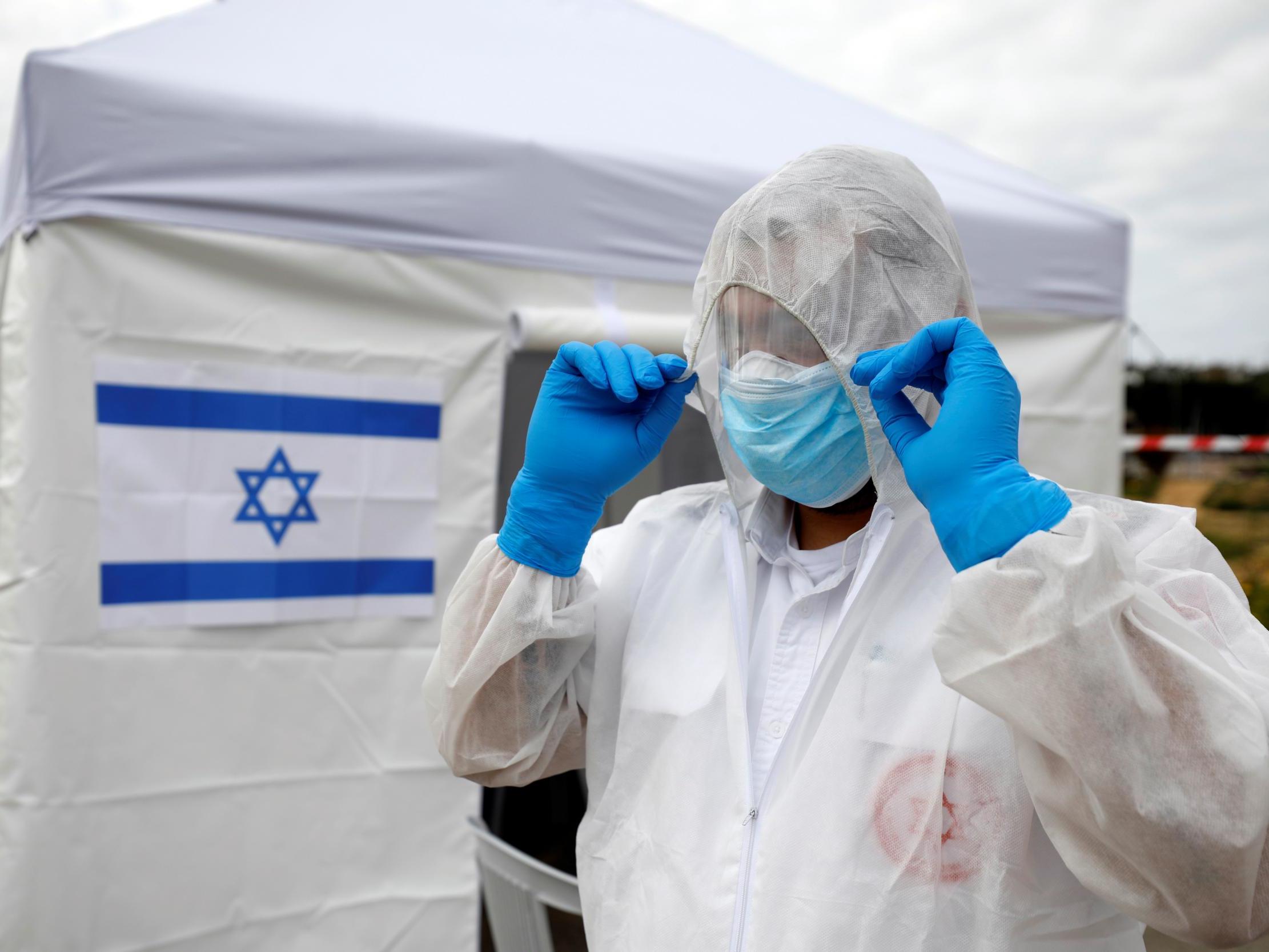Religious extremists are making the coronavirus pandemic even worse
Whether in the Iranian shrine city of Qom or the Bible Belt of the United States, the zealots are even claiming they hold the cure to the pandemic, writes Borzou Daragahi


In the American state of Louisiana, a Christian preacher defies authorities worried about the spread of the novel coronavirus and insists on holding a service that draws 1,000 people. In Pakistan, a gathering of nearly a quarter of a million Muslims in late February, held despite warnings of coronavirus, has been pinpointed as a “super-spreader” of the virus across the world. Jewish temples in Israel, identified as one of the hotspots for the spread of coronavirus, finally agreed to shut just a few days ago, well into an outbreak that is rapidly spreading across the country.
Religious extremists across the world, and in nearly every faith, are contributing to a global pandemic by refusing to abide by scientific advice and hold off on gatherings. Whether in the Iranian shrine city of Qom or the Bible Belt of the United States, the zealots are sometimes even touting their hocus pocus as cures to the pandemic.
All too often governments worried about alienating pious supporters are buckling to their pressure. Pakistani officials, for example, advised but did not order the organisers of the five-day Tablighi Ijtema gathering near Lahore to cancel the gathering. Organisers refused to heed them, drawing tens of thousands of religious scholars who later may have seeded the outbreak across the planet.
Authorities in Iran dithered for weeks on whether to close down religious shrines and mosques. Meanwhile, fanatics quoted Quranic verses about the healing power of faith, and several men filmed themselves licking the metallic coverings encasing the tombs of ancient Shia Muslim saints to prove their devotion. Iran’s hardliners deploy black-helmeted stormtroopers with truncheons to pummel any gathering of schoolteachers demanding better wages or mothers demanding the release of their imprisoned sons. But they consider such extremists their political “base,” so tread carefully.
Iraqi supporters of the cleric Moqtada al-Sadr defied government orders to avoid religious gatherings, insisting the power of Allah would protect them from the virus during mass rallies last week. “From east to west, coronavirus has terrified you,” they chanted. “Seek refuge to Allah in every path, for there is no one capable but him.”
Epidemiologists have pinpointed religious gatherings as a major conduit for the coronavirus, including those who attended the minor Hajj this year in Saudi Arabia. Yet at least three US states have refused to ban church, synagogue or mosque services for fear of interfering in the separation of church and state. Some synagogues and churches in New York, the city perhaps most hard hit by the pandemic across the world, are insisting on staying open, prompting the mayor Bill de Blasio to deploy law enforcement to keep their places of worship shut.
After Israel ordered a ban on religious gatherings, some 300 ultra-orthodox Jews insisted on defying government social-distancing rules on Saturday night when gathering for a rabbi’s funeral. “Mourners congregated closely and ignored police directions,” reported Haaretz.
Even religious leaders who don’t insist on holding gatherings are sometimes contributing to the panic and hysteria surrounding the pandemic. One Christian preacher in the US who is close to the White House has blamed the pandemic on homosexuals and environmentalists who incurred God’s wrath, just as Isis has attributed the illness to God’s revenge against Iran, the United States and its other enemies.
Lest one think the problem persists only among followers of Abrahamic faiths, Indian health officials are worried that a Sikh religious leader may have given the virus to up to 15,000 people while spreading his words of enlightenment on a 15-village walkabout before he died of Covid-19. The guru ignored official orders to self-isolate after returning from a trip to Italy.
Southeast Asian countries for weeks refused to address the coming onslaught of coronavirus, with even some medical professionals insisting their Buddhist way of life and prayer would ward off a virus made of protein and fat. “Myanmar is still lucky because it’s a Buddhist country and senior monks are always praying to be safe,” Dr Win Thandar Phyu, a Yangon physician, told The New York Times.
In times of crisis and grief, faith can serve as a comfort, providing solace to the worried and sick. At their best in times of crisis, religious institutions can promulgate good advice, inspire people to do well by their neighbours and even help organise aid and relief efforts for the needy. In Morocco, clerics urged the faithful to avoid the mosques but climb up to their rooftops and join in a communal prayer service while abiding by social distancing restrictions.
But this ain’t the age of Galileo. Science trumps religion. Liberal tolerance or indulgence of people’s belief systems eases where the health and safety of the public begins. If religious zealots resist the time-tested wisdom of doctors and epidemiologists, courts and law enforcement can force them to comply.
Join our commenting forum
Join thought-provoking conversations, follow other Independent readers and see their replies
Comments